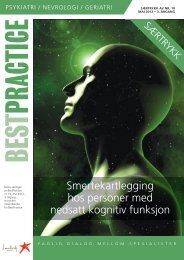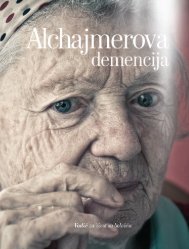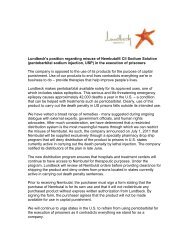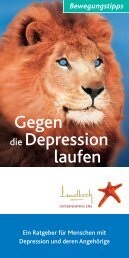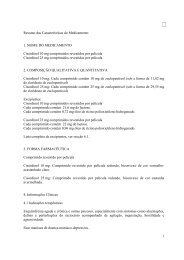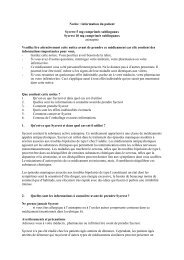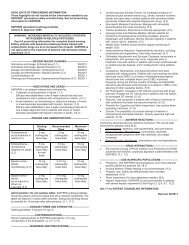Download - Lundbeck
Download - Lundbeck
Download - Lundbeck
Create successful ePaper yourself
Turn your PDF publications into a flip-book with our unique Google optimized e-Paper software.
<strong>Lundbeck</strong> Magazine 2009<br />
41<br />
s an active researcher, Anne-Marie<br />
Engel was so successful at applying<br />
for and obtaining financing for her<br />
research that she taught her colleagues how<br />
to write applications that get the desired<br />
results. Now, she is on the other side of the<br />
table. As Director of Research at the <strong>Lundbeck</strong><br />
Foundation and secretary of its selection<br />
committee, Anne-Marie Engel is involved in<br />
processing the approximately 600 applications<br />
for funds for research purposes in the health<br />
and natural sciences which the Foundation<br />
receives annually.<br />
The selection committee has eight members,<br />
three of whom are on the board of the<br />
<strong>Lundbeck</strong> Foundation, and three of whom are<br />
scientific experts in Denmark’s neighbouring<br />
countries. The eight members gather three<br />
times a year to assess the individual<br />
applications, in order to provide the best<br />
possible basis for the Board of the <strong>Lundbeck</strong><br />
Foundation to distribute the large amounts<br />
of money at its disposal. Between 2008 and<br />
2010, the Foundation will distribute<br />
approximately DKK 1 billion.<br />
Many excellent researchers<br />
The first requirement is that research must be<br />
top quality, a criterion that applicants normally<br />
have no difficulty in meeting.<br />
“We see many good applications, and it is<br />
my impression that we have many excellent<br />
researchers in Denmark. Research projects<br />
must be in either the health or natural<br />
sciences. The foundation has a long tradition<br />
of supporting neurological research, though we<br />
also give money to many other fields within<br />
the health sciences. In recent years, we have<br />
given money for research in areas such as cell<br />
biology and cell communication. We have also<br />
donated to translation, which deals with<br />
building bridges between basic and clinical<br />
research that is done with a view to<br />
discovering improved methods of treatment<br />
based, among other things, on new knowledge<br />
of the role of genes in development of certain<br />
diseases. If scientists can map the significance<br />
of genes in development of illnesses such as<br />
asthma and various life-style diseases, it will<br />
have major consequences for both treatment<br />
and prevention,” Anne-Marie Engel says.<br />
Focus on intervention<br />
Intervention is another area of current interest<br />
to researchers.<br />
“In 2008 we supported the establishment of<br />
three centres. At the first centre, research is<br />
being done to optimize radiation treatment<br />
of various types of cancer, and at the second<br />
centre efforts are being made to discover a more<br />
efficient and less traumatic method of replacing<br />
knees and hips. The third centre focuses on<br />
neurological research, namely schizophrenia.<br />
Danish scientists have helped establish the<br />
existence of a chromosomal error that causes<br />
susceptibility to schizophrenia – a discovery that<br />
may well change the perception of persons with<br />
psychiatric disorders – the same as discovery of<br />
the bacteria that causes stomach ulcer has done<br />
for persons with that disorder. These persons<br />
used to be considered ‘delicate’. We now know<br />
that the illness has a physiological cause,” Anne-<br />
Marie Engel continues.<br />
A few years ago, the Board of the <strong>Lundbeck</strong><br />
Foundation also decided to earmark an amount<br />
for research in physics and chemistry, and the<br />
Foundation has also given money to projects<br />
such as Danish scientists’ studies of the universe.<br />
“It is very difficult to obtain financing for this<br />
type of research in Denmark, while there are<br />
many foundations that support research in the<br />
health sciences. The <strong>Lundbeck</strong> Foundation<br />
wishes to support Danish research on a broad<br />
front. We believe it is important to have a<br />
dynamic research environment in Denmark,”<br />
states Anne-Marie Engel.<br />
Too few young people<br />
She is a medical doctor, and became<br />
fascinated by research. She was employed as<br />
a researcher at Statens Serum Institute when<br />
she saw a job advert from the <strong>Lundbeck</strong><br />
Foundation. Much of the work consisted of<br />
reading applications and writing an<br />
introduction to them.<br />
“It was the ideal job for me. I was always<br />
reasonably lucky with writing applications to<br />
foundations to finance my research. Later, I<br />
taught others how to write successful<br />
applications to foundations that had<br />
previously turned them down,” Anne-Marie<br />
Engel continues.<br />
Her greatest concern for research is the fact<br />
that too few young people are studying for<br />
degrees in the natural sciences.<br />
“It would be unfortunate if the falling<br />
tendency continues. For this reason, the<br />
<strong>Lundbeck</strong> Foundation is supporting a number<br />
of initiatives that seek to influence students’<br />
choice of field of study during their early years<br />
at school. This must be done at a stage when<br />
they are still asking spontaneous questions<br />
about nature, and, among other things, the<br />
initiatives involve strengthening instruction in<br />
nature and technology for the youngest<br />
children in primary schools. Teachers must<br />
have more possibilities for making<br />
experiments. Children love classes where they<br />
are able to experiment, and they remember<br />
them for a long time – perhaps for the rest of<br />
their lives. Stimulating young people’s pleasure<br />
in the natural sciences is very close to my<br />
heart,” concludes Anne-Marie Engel.<br />
The <strong>Lundbeck</strong> Foundation is a commercial foundation which was established in 1954 by Mrs Grete<br />
<strong>Lundbeck</strong>, the widow of the founder of H. <strong>Lundbeck</strong> A/S. The primary aim of the Foundation is to<br />
maintain and expand the activities of the <strong>Lundbeck</strong> Group, and to provide funding for research of the<br />
highest quality in the health and natural sciences.<br />
In 2007 and 2008, the Foundation supported the establishment of research centres whose aim is<br />
to make the results of basic scientific research available for patients as quickly and efficiently as<br />
possible. The theme for 2009 is nanomedicine.<br />
In 2008, the <strong>Lundbeck</strong> Foundation donated DKK 328 million to research.<br />
PHOTO: Joachim ladefoged



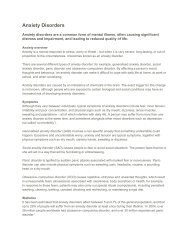
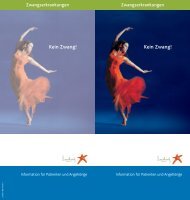
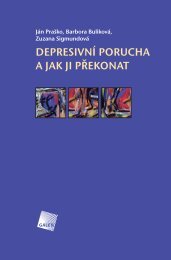
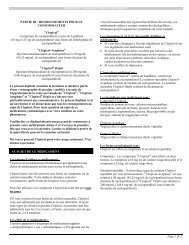
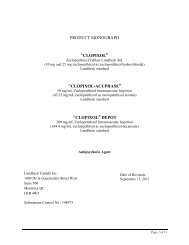
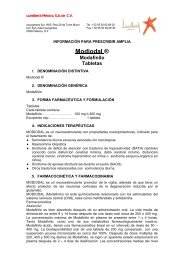
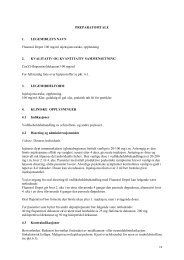
![[Product Monograph Template - Standard] - Lundbeck](https://img.yumpu.com/49015733/1/190x245/product-monograph-template-standard-lundbeck.jpg?quality=85)
